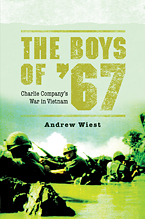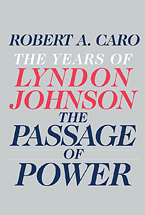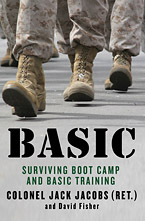 |
|||||||||||
|
BOOKS IN REVIEW, September/October 2012 In The Delta With A Unique 9th Infantry REVIEWS BY MARC LEEPSON
That’s probably what about 95 percent of us who served in the American military in the Vietnam War experienced. However, in the early years of the war—up till some time in 1967—a small number of units arrived in country together after shipping out (literally by ship) from the States. Only in one circumstance, though, was an entire division raised, drafted, and trained for service in the Vietnam War: the 4th Battalion, 47th Infantry of the Army’s 9th Infantry Division. One company of the 4th of the 47th is the subject of Andrew Wiest’s well-written and well-researched book, The Boys of ’67: Charlie Company’s War in Vietnam (Osprey, 376 pp., $25.95). A history professor who teaches Vietnam War history at the University of Southern Mississippi, Wiest has written widely about the military and political history of the war. In his new book, however, Wiest concentrates on the human side of the conflict. He follows a group of men who were drafted into the Army in 1966 and trained together with the reformed 9th Infantry Division. After training in the States, the men went to Vietnam in January 1967 as a unit on a troop ship. In Vietnam, the men of Charlie Company became enmeshed in the worst the war had to offer. As Wiest puts it: They “faced a brutal year of relentless combat and constant loss.” The area of operations was the Mekong Delta, “an alien land of murderous heat, sucking mud, and unforgiving jungle.” The unit functioned as the infantry arm of the joint Army-Navy unit called the Mobile Riverine Force. The men of Charlie Company suffered extremely high casualty rates; 25 were killed in action and 105 were wounded. Many of the men suffered anew after returning home, battling post-traumatic stress disorder for decades. Wiest spent three years interviewing sixty-one officers and men of Charlie Company, 4th Battalion, 47th Infantry. He tells their stories well and empathetically, especially those of the dozen or so men whose lives he chronicles in depth before, during, and after their service in Vietnam. LBJ: HIS WAR BEGINS
Caro touches on the war in the last quarter of the new book, but looks only at the decisions Johnson made on Vietnam War policy in the weeks following the November 22, 1963, assassination of John F. Kennedy. Caro says that he will address “the great questions about the Vietnam War” in the next volume. Those Big Questions include what choices LBJ had when he took over as President and whether, had JFK lived, U.S. “policy would have been different from the policy Johnson pursued.” What Caro does discuss in The Passage of Power is exactly what Johnson did in those first few weeks of his presidency (“early steps on what was to be a very long road”) with respect to Vietnam. Caro says that there are two unifying themes in that early decision-making. First and most importantly, LBJ concealed those early decisions from Congress and the American public. Second, “the steps he took,” Caro notes, “have, as their unifying principle, an objective dictated largely by domestic—indeed, personal—political concerns.” Just before Christmas LBJ secretly ordered a stop to Kennedy’s planned withdrawal of about one thousand American military advisers per month. In mid-January LBJ approved a covert operations plan directed against North Vietnam, including naval operations in the Tonkin Gulf. “The overriding aim,” Caro says of these and other early decisions, “was to keep Vietnam from becoming a major political issue.” Johnson had his eyes on the 1964 presidential election and, as Caro shows, he was not going to let any potentially controversial Vietnam War decisions become public until after the election. SURVIVING MILITARY EDUCATION
Jacobs, a VVA member, does on-air analysis on NBC News, in addition to his duties as a professor of humanities and public affairs at West Point. His Vietnam War memoir, If Not Now, When?, co-written with Douglas Century, came out in 2008. Jacobs’s latest literary effort is Basic: Surviving Boot Camp and Basic Training (Thomas Dunne Books, 320 pp., $25.99). In his new book, co-written with David Fisher, Jacobs offers a history of what virtually every one of the forty million men and women who have served in this country’s armed forces since World War I has in common: the physical and emotional rite of initiation the Army, Air Force, and Coast Guard call Basic Training and the Navy and Marines refer to as Boot Camp. Jacobs himself commanded an OCS training company at Fort Benning in 1968, and offers insights from that perspective. He also includes plenty of quotes from veterans who survived basic training, many from the Vietnam War era. His book, Jacobs says, “is a celebration of basic military education, an experience shared by generations of Americans, a story told mostly through the articulated memories of men and women who have gone through it.” Basic training, Jacobs says, is remembered by most veterans “not for the tedium, the repetition, the ridiculous tasks, or the nonsensical rules and punishment, but rather for the people and the humor and the struggles they endured, and for their ability to achieve more than they ever dreamt possible.” Now, drop down and gimme fifty, maggot! SEE ALSO: Arts of War on the Web | Books in Brief
|
|||||||||||
| |
|||||||||||
|
|||||||||||
8719 Colesville Road, Suite 100, Silver Spring. MD 20910 | www.vva.org | contact us |
|||||||||||











